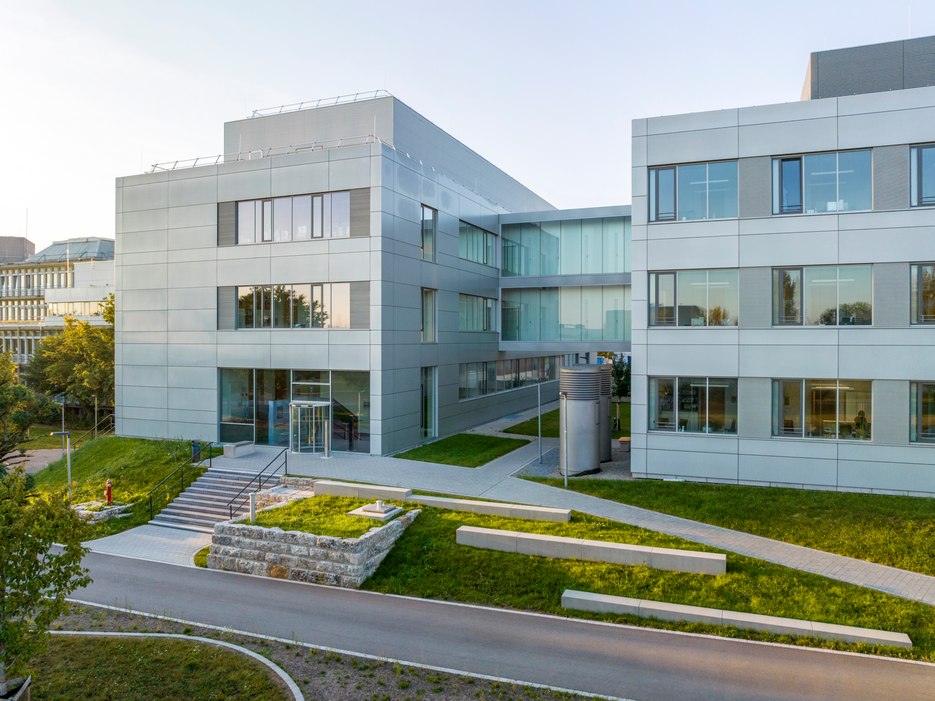Sustainable Chemistry: Two Projects are Dedicated to Batteries
09/23/2025Developing new batteries and recycling existing ones: These are the goals of two projects at the Institute for Sustainable Chemistry and Catalysis with Boron and the Institute for Inorganic Chemistry at the University of Würzburg.

Energy storage systems in the form of batteries play a key role in the global energy transition. However, their production usually requires valuable and sometimes scarce raw materials such as lithium, cobalt and nickel, the mining of which is often associated with harmful effects on the environment. For this reason, the recycling of lithium-based batteries on the one hand and the development of alternative battery technologies on the other are of great importance.
Two new research projects by scientists at the Institute for Sustainable Chemistry and Catalysis with Boron (ICB) and the Institute of Inorganic Chemistry (IAC) at Julius-Maximilians-Universität Würzburg (JMU) are dedicated to both approaches. The Federal Ministry of Research, Technology and Space (BMFTR) is providing a total of almost 1.8 million euros for this project.
New Batteries Based on Boron Compounds
In the joint project "Solid-state sodium-ion batteries based on boron-containing electrolytes"(FestNaBor), sodium-ion solid-state batteries are being developed as an alternative energy storage system to lithium-ion batteries. Unlike lithium, sodium is available in practically unlimited quantities. Professor Maik Finze and Professor Holger Braunschweig are working with their teams to develop efficient and resource-saving syntheses for sodium salts with borate anions (sodium closo-borate).
Studies have shown that sodium closo-borates are very stable and can exhibit sodium ion conductivity in the solid state. This makes them ideal candidates for the construction of sodium-ion solid electrolytes, which are used in sodium-ion solid-state batteries together with partners within the consortium.
For the FestNaBor project, the BMFTR is providing the groups led by Maik Finze and Holger Braunschweig at the ICB with a total of almost 800,000 euros. At the institute, everything revolves around the element boron, as it can enable more sustainable chemistry, whereby boron-containing molecules can fulfil a variety of tasks. For example, borate anions not only serve as components of conductive salts in batteries but also in supercapacitors or as catalysts for the environmentally friendly synthesis of chemicals. The ICB at the University of Würzburg was founded in 2019 and the institute's new building was inaugurated on 31 March 2022.
Contact
Prof. Dr Holger Braunschweig, Head of the Chair of Inorganic Chemistry II, T: +49 931 31-85260, holger.braunschweig@uni-wuerzburg.de
Prof. Dr Maik Finze, Head of the Chair of Inorganic Chemistry III, T: +49 931 31-85857, maik.finze@uni-wuerzburg.de
Recycling Lithium-Ion Batteries
Lithium-ion batteries are the state of the art in electric vehicles. When the batteries reach the end of their life, ecologically questionable waste is produced, which can also serve as a valuable source of critical raw materials.
The research project "Processes for the Direct Recycling of Cathodes from Cyclised Lithium-Ion Batteries to Maximise Recoverable Functional Materials"(ProBatman) aims to fully recycle end-of-life batteries and reintegrate the individual components and materials into the production cycle for new batteries as completely as possible. The groups led by Professor Maik Finze and Dr Guinevere Giffin are working together with partners from industry and research institutions to develop and optimise the individual process steps with the aim of maximising the recovery of elementary components and reducing thecarbon footprint of the value chain.
The BMFTR is funding the work on ProBatman in the groups of Maik Finze and Guinevere Giffin at the IAC of the JMU with more than 970,000 euros.
Both projects will run for three years until the end of June 2028.
Contact
Prof Dr Maik Finze, Head of the Chair of Inorganic Chemistry III, T: +49 931 31-85857, maik.finze@uni-wuerzburg.de
Dr Guinevere Giffin, Institute of Inorganic Chemistry, guinevere.giffin@uni-wuerzburg.de






